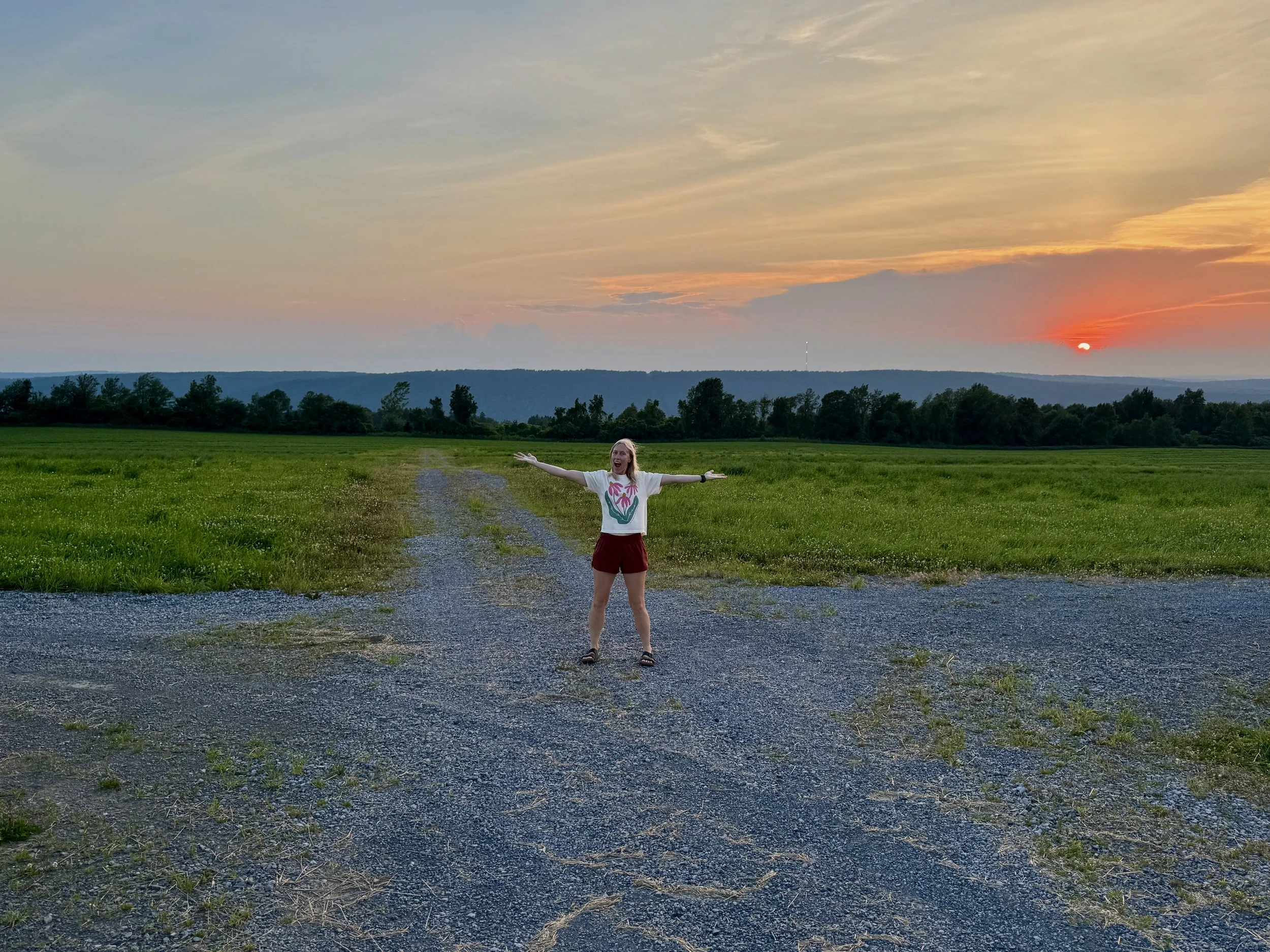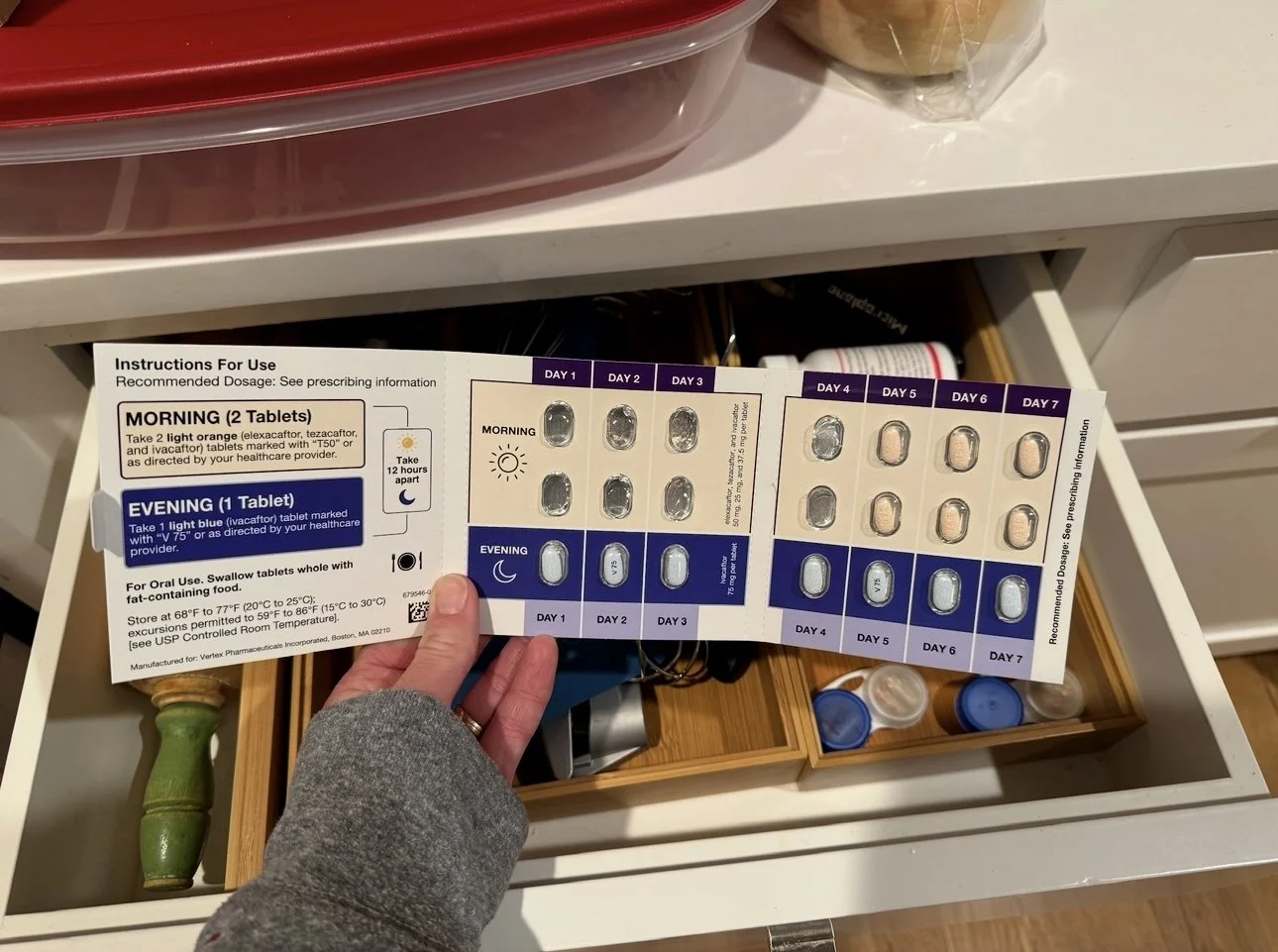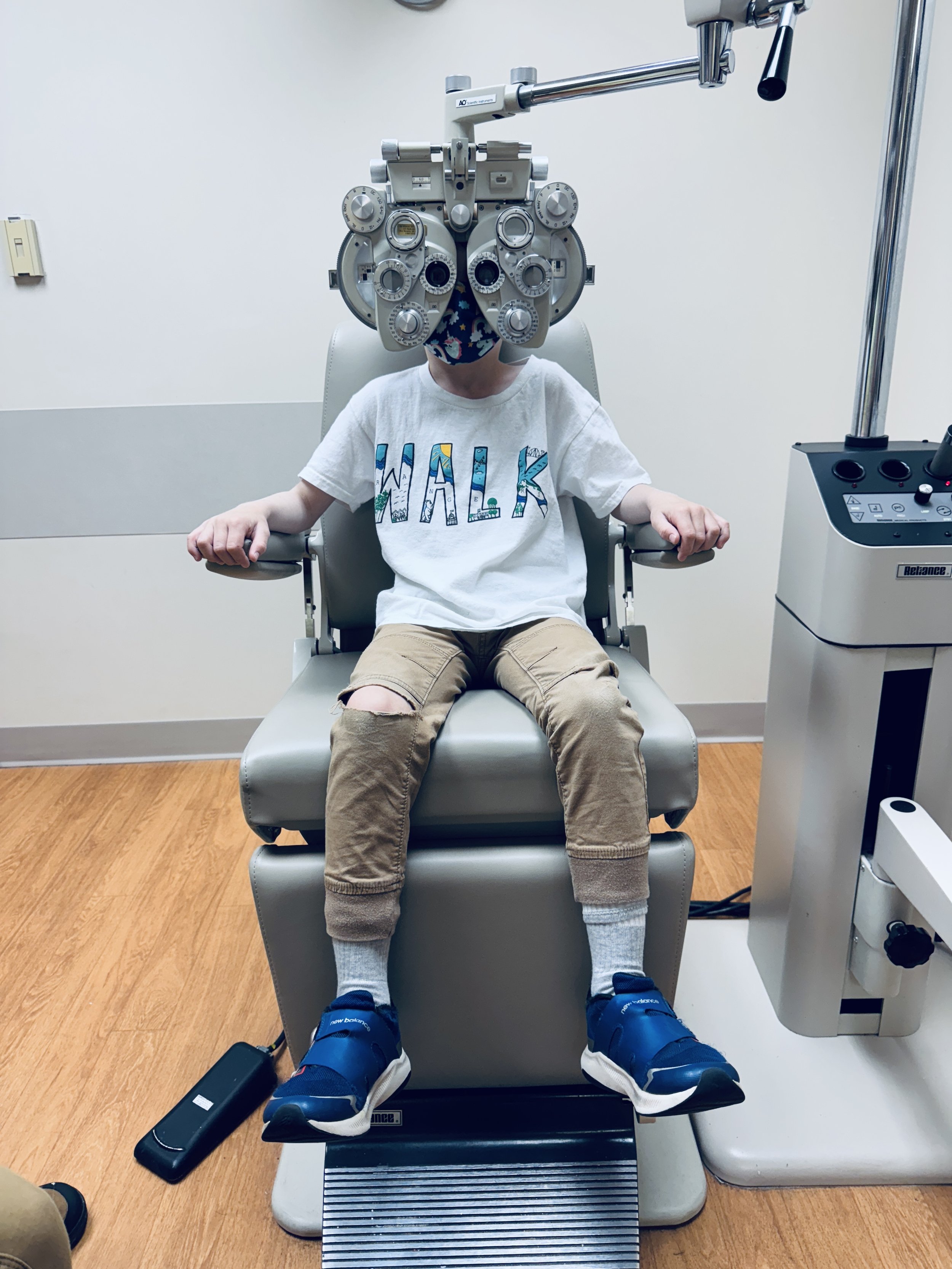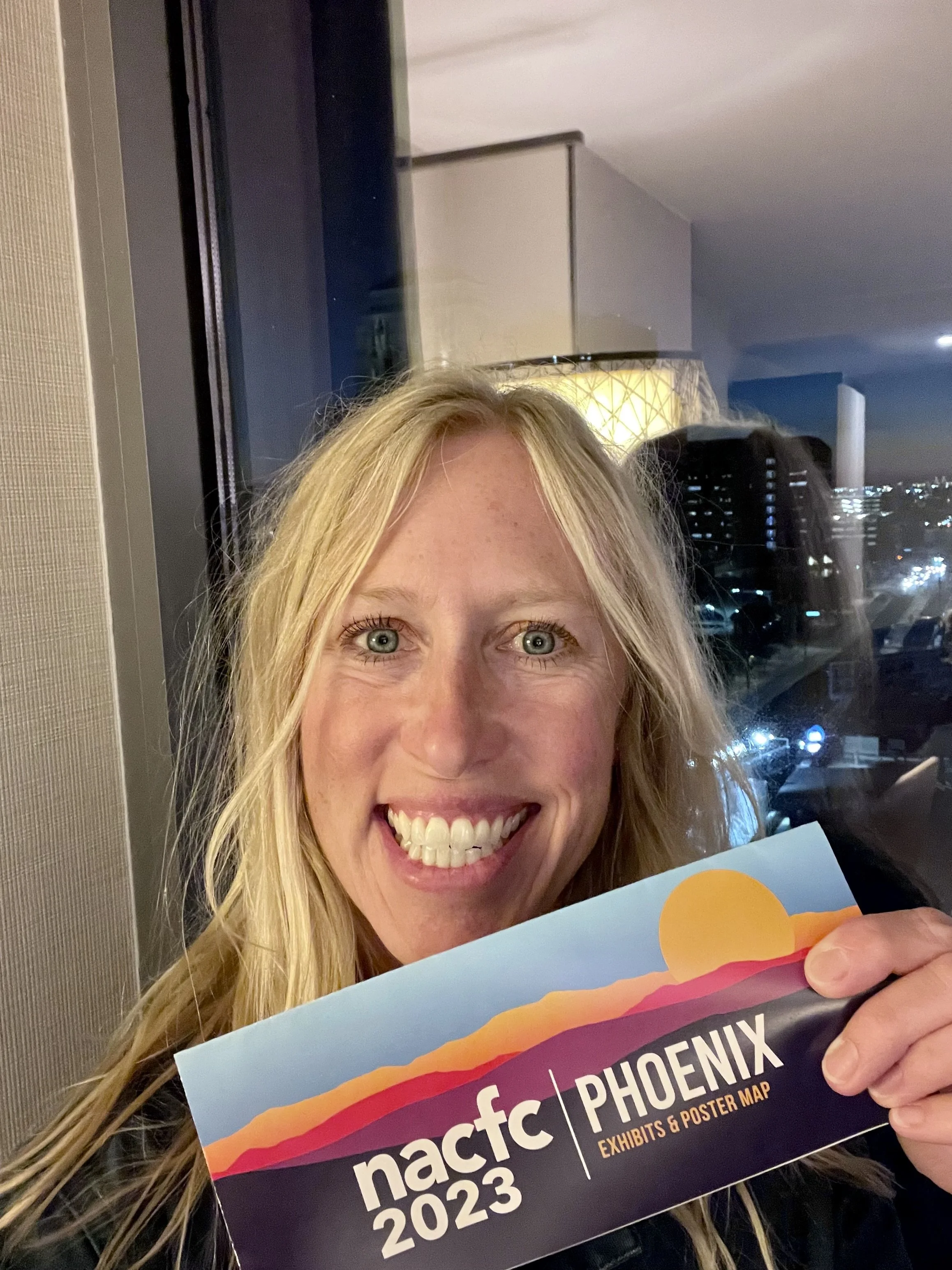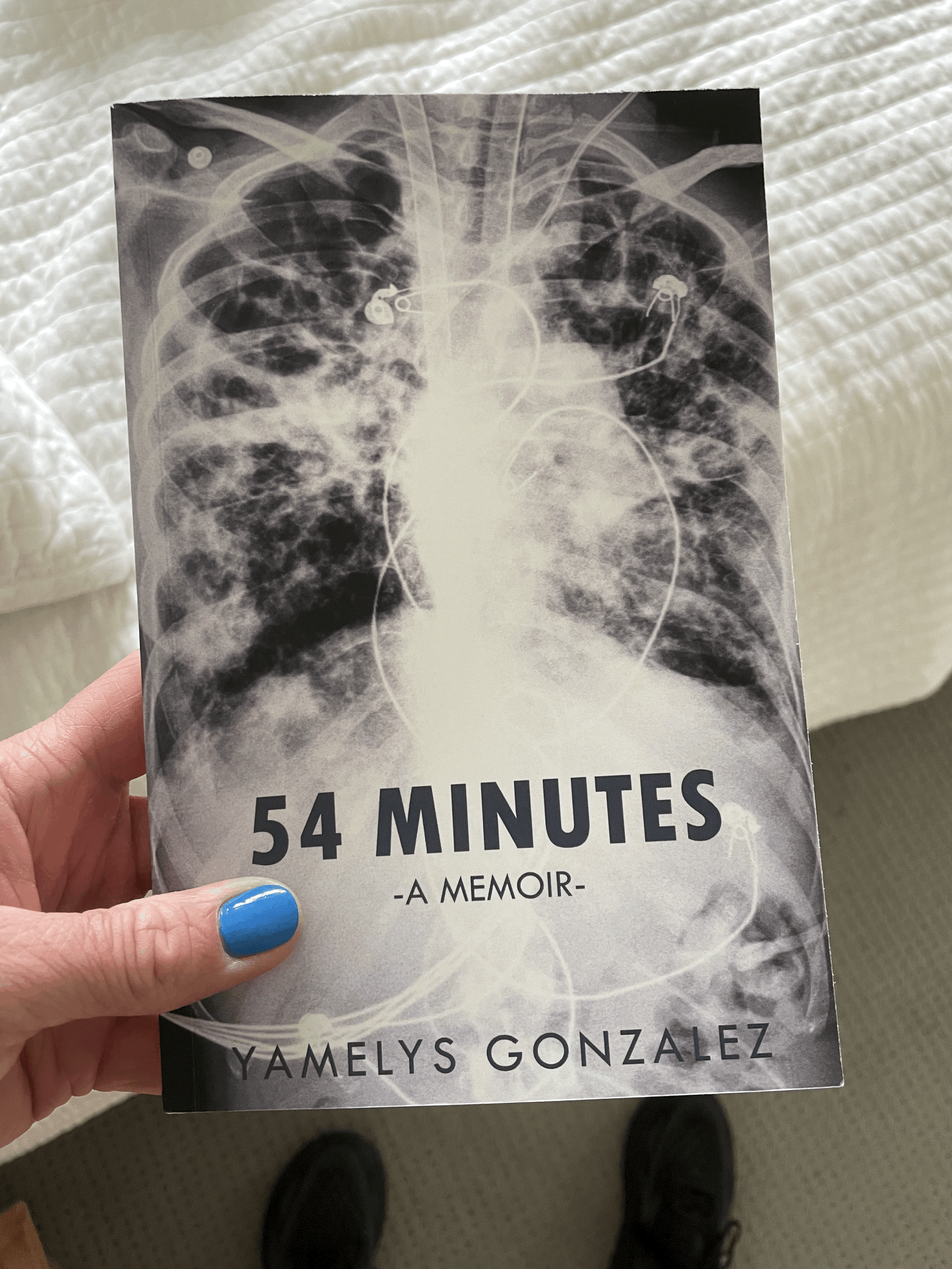To Share or Not to Share…
I find myself at a crossroads. Do I throw my shovel back in the car and scrap this whole blog thing to try to protect myself from the internet? Do I dig in carefully and try to not disrupt the major pipelines below? Do I get an excavator and create a geyser like Old Faithful in my front yard? I honestly don’t know. I am guessing I won’t know the answer for a few years. In reality I want it all but I also know that is not how life works. I may have to create a geyser to find a cure for my son and hope that I don’t ruin too many things with the flood in the process.
In the world we live in with access to so much “stuff” and my freakish fear of AI (one day my toaster is going to come alive and attack me… haven’t you seen Mitchells vs the Machines) I hesitate to post anything about our family, particularly my kids. When Facebook started it was a way for my friends and family to “watch” my kids grow up in a seemingly safe way. Fast forward to now and social media has morphed into a whole new beast. Call me old, but I worry about what it is now and therefore try to keep my family off of it as much as possible. I am saddened by what we have lost but more fearful of what we are moving towards.
As a result, I have become a fairly private person online except for this blog. Being silent won’t find a cure for my son. With that said, I have chosen to keep his name and image off of this blog. He has a story that is different than mine and if he chooses to share that one day he can. We have a rule in our house that you don’t get to tell someone else’s story. It is their story - not your’s. But stories are what make us human. They are what connect us and compel us to make a change or fight for something or someone. And if I want my son to have a cure for his disease I have to fight for change, which means sharing my story even if it makes me uncomfortable. Mom’s before me fought for their children with CF by telling their stories (65 Roses) and so I will continue to do the same. I will try to be as honest as I can but I know that with that honesty will come judgment and some regret. How much do I share? How much will it take to find a cure for my son? I have no idea… but I have to keep trying. I owe it to him to not give up and hope that one day this blog won’t matter because a cure has been found.
My Story
Hi, my name is Katie. I am multiple things…a southerner that loves snow, a flower farmer, a photographer, a lover of music but cannot carry a tune, a mom to 3 funny, kind boys that I love fiercely and to 4 pets (we include pets in our family). I am a wife to a loving husband of over 20 years that still makes me laugh every day and a lover of nature and ordered chaos. With three boys and four pets, there aren’t many dull moments in our pocket of the neighborhood. It is a bit of a zoo but I would not have my life any other way…except for my son’s Cystic Fibrosis (CF).
Almost 7 years ago, our family's world was rocked when my youngest son, was born with Cystic Fibrosis. Learning your newborn child has a progressive, genetic, life-shortening disease is one of the worst things that can happen to a parent. For those that don’t know much about CF, it is a genetic disease that affects the lungs and pancreas primarily and other organs secondarily. Our son has the genetic mutation delta F508, the most common Cystic Fibrosis mutation. This makes him prone to lung infections and leads to trouble with digestion requiring him to use a percussive vest to break up thick mucus and ingest pancreatic enzymes before food. Our son is incredibly tough and has taken ownership of his disease. We tell him he has CF super genes. It takes a lot to bring him down…ask his brothers.
Early on, I was asked to participate in CF related events and always said no. The first few years were rough. I was angry, terrified and grieving all at once. Part denial and part exhaustion meant I was barely keeping my head above water and the last thing I wanted to do was be reminded that my son might not outlive me. In hind sight, we probably all should have been in therapy.
However, in November 2022 I was asked to be the parent representative in a research project at the local Children’s Hospital on acid suppressor therapies which are commonly prescribed in children with CF to improve pancreatic enzyme supplementation efficacy or/and to treat gastroesophageal reflux symptoms. I tentatively said yes and am so glad I did. That lead to me being on the Cystic Fibrosis Family Advisory Board (FAB) in 2023 and then the Cystic Fibrosis Foundation (CFF) Local Chapter Board in 2023.
Being present in all of these has given me access, knowledge and empowered me in ways I would not have had otherwise. I have met some amazing people along the way; a doctor in Connecticut helping care for kids with CF in medically deprived countries oversees, researchers in Birmingham working tirelessly to find a cure, an advocacy & government affairs specialist as well as other moms of CF children who are fighting for their kids just like me. Whatever the organization may be, I truly believe having someone who lives it is invaluable to the mission & success of the group. When an organization does not have someone in that seat, they are at risk of losing sight of what they are fighting for. Kids and people like my son.
Luckily, because of amazing research leading to new medications, our son’s prognosis is not what it would have been if he were born a decade earlier. My husband and I see our son fight his disease every day. The least I can do is fight for a cure for him. For me, that means attending medical conferences such as NACFC to have the most up to date information on CF, attending VLC where I can learn about new ways to raise awareness and being an active participant in every way that I can locally and nationwide.
By raising awareness, my hope is that it will hopefully lead to raising funds to continue the research for better medications and ultimately, a cure. As parents we will do anything to help our kids. This is my way of trying to make a difference. Our “normal” may be different than most people but we hope to give our son the best opportunity we can. It is what we hope for all three of our boys, just like every other parent. And it is why I put in countless hours on these CF organizations and events, hoping in the end it leads to a cure.
Cheers, Katie :)
Hi, my name is Katie. I am multiple things… a southerner that loves snow, a flower farmer, a photographer, a lover of music but cannot carry a tune, a mom to 3 funny, kind boys that I love fiercely and to 4 pets (we include pets in our family). I am a wife to a loving husband of over 20 years that still makes me laugh every day and a lover of nature and ordered chaos. With three boys and four pets, there aren’t many dull moments in our pocket of the neighborhood. It is a bit of a zoo but I would not have my life any other way…except for my son’s Cystic Fibrosis (CF).
Almost 7 years ago, our family's world was rocked when my youngest son, was born with Cystic Fibrosis. Learning your newborn child has a progressive, genetic, life-shortening disease is one of the worst things that can happen to a parent. For those that don’t know much about CF, it is a genetic disease that affects the lungs and pancreas primarily and other organs secondarily. Our son has the genetic mutation delta F508, the most common Cystic Fibrosis mutation. This makes him prone to lung infections and leads to trouble with digestion requiring him to use a percussive vest to break up thick mucus and ingest pancreatic enzymes before food. Our son is incredibly tough and has taken ownership of his disease. We tell him he has CF super genes. It takes a lot to bring him down…ask his brothers.
Early on, I was asked to participate in CF related events and always said no. The first few years were rough. I was angry, terrified and grieving all at once. Part denial and part exhaustion meant I was barely keeping my head above water and the last thing I wanted to do was be reminded that my son might not outlive me. In hind sight, we probably all should have been in therapy.
However, in November 2022 I was asked to be the parent representative in a research project at the local Children’s Hospital on acid suppressor therapies which are commonly prescribed in children with CF to improve pancreatic enzyme supplementation efficacy or/and to treat gastroesophageal reflux symptoms. I tentatively said yes and am so glad I did. That lead to me being on the Cystic Fibrosis Family Advisory Board (FAB) in 2023 and then the Cystic Fibrosis Foundation (CFF) Local Chapter Board in 2023.
Being present in all of these has given me access, knowledge and empowered me in ways I would not have had otherwise. I have met some amazing people along the way; a doctor in Connecticut helping care for kids with CF in medically deprived countries oversees, researchers in Birmingham working tirelessly to find a cure, an advocacy & government affairs specialist as well other moms of CF children who are fighting for their kids just like me. Whatever the organization may be, I truly believe having someone who lives it is invaluable to the mission & success of the group. When an organization does not have someone in that seat, they are at risk of losing sight of what they are fighting for. Kids and people like my son.
Luckily, because of amazing research leading to new medications, my son’s prognosis is not what it would have been if he were born a decade earlier. My husband and I see our son fight his disease every day. The least I can do is fight for a cure for him. For me, that means attending medical conferences such as NACFC (National CF conference) to have the most up to date information on CF, attending VLC where I can learn about new ways to raise awareness and being an active participant in every way that I can locally and nationwide.
By raising awareness, my hope is that it will hopefully lead to raising funds to continue the research for better medications and ultimately, a cure. As parents we will do anything to help our kids. This is my way of trying to make a difference. Our “normal” may be different than most people but we hope to give our son the best opportunity we can. It is what we hope for all three of our boys, just like every other parent. And it is why I put in countless hours on these CF organizations and events, hoping in the end it leads to a cure.
Cheers, Katie :)
“65 Roses” Day
Today 6/5 is “65 Roses” Day! The "65 Roses" story dates back to 1965 when an observant 4-year-old, Richard "Ricky" Weiss, hearing the name of his disease for the first time, pronounced Cystic Fibrosis as "65 Roses.
Silver Lining
It’s amazing how something seemingly bad can turn into something good. My son’s liver can only handle the morning dose of Trikafta and it’s still a little bit unhappy about that. As a result, we have all of these PM doses that we can’t use. For the last year I’ve been able to ship those to a doctor that helps children overseas with cystic fibrosis that don’t have access to care. A little girl in Africa is able to take his PM dose of Trikafta paired with Clarithromycin and it’s acting as though she were taking the whole dose. What was seemingly sad for our family that our son could not take both doses is helping save a little girl overseas. ❤️
Find the silver lining.
CF Appointments
If I’m being honest, any appointment with my son spikes my anxiety and I’m exhausted afterwards. I’m always worried they’re gonna find something wrong, especially something that we can’t fix. This is a real fear for any person that has CF since there are not antibiotics to kill every bacteria they can get. Thankfully, today was just his annual eye appointment. The CF modulator he’s on, Trikafta can cause cataracts even in children so we have to get annual checks to make sure this is not happening. He did great and thankfully does not have cataracts & was very happy to not have to go back to school in sunglasses. This road of him having CF is bumpy and often has detours that we don’t know are coming. Thankful right now the road is straight...
UAB Lab Experience
My husband & I went to Birmingham in 2024 to tour the UAB Research Facility where groundbreaking research is being conducted on Cystic Fibrosis. We were able to meet with the scientists performing this research & actually walk around the lab where these experiments are taking place. We were able to see three in particular.
The first one looked at the lung cells & how the cilia of the lung cells move mucus in people with CF vs nonCF. (Cilia is like a conveyor belt, moving things along. The stickier mucus makes it hard for the cilia to move it out, allowing it to get stuck.).
The second one is studying mucus & how it is changing with the help of the new modulators like Trikafta to thin the mucus.
The 3rd experiment we saw was on gene splicing & how it changes CF lung cells ability to function more normally. Gene splicing is inserting the correct gene in the place of the defected CF one. One thing that stood out to us was that this particular lab had developed a way to take any cell in the body & turn it into a stem cell that can then be converted into lung cells to advance research. This alleviates the ethical debate with using embryonic stem cells.
Finally, while we did not tour this part of the lab, they think within 5 years they will begin human trials involving gene editing with the goal of correcting the genetic defect in the CFTR gene. This may effectively cure rather than treat Cystic Fibrosis. This is similar to the recent development of a genetic cure of Sickle Cell. This research is amazing & so hopeful for the future of CF & other genetic diseases. It’s awesome to actually see where donations to the Cystic Fibrosis Foundation are making a difference. CFTR gene -chloride transporter that controls salt, which controls water. This does not work correctly which allows mucus to get sticky & build up. Also causes them to get dehydrated easier than non-CF people.
Aside from the lab tour, we were also able to meet other CFF staff & CF parents who understand the journey & struggles of life with this disease. CF sucks & I wish my son’s life was different but through this journey we are meeting some incredible people. We are so thankful for this opportunity & would encourage anyone who wants to learn more to go.
NACFC in Phoenix
I had the opportunity to attend the North American Cystic Fibrosis Conference (NACFC) in Phoenix in October 2023 with the hospital staff. I am the parent representative for a research study being done at the local children’s hospital on the use of acid reflux medication. Working with the staff has been great and they have always made me feel incredibly welcome so when I was invited to go with them, I jumped at the chance.
Let me say first off that I do not have a medical background and all that I am about the discuss I learned at the multiple sessions that I attended. If you want more detailed information on something I can direct you to the presenter.
CF can be a pretty isolating disease because we cannot interact with other CF families due to the risk of sharing CF germs. I’ve gotten to know some of the parents of other children with CF and they’ve all been great, but it’s still sad that we can’t do life together. Each day of the conference, there was a plenary session where all of us came together into the same room to hear a presentation. It was amazing to be in a room with over 4000 people that were all there to support CF and just see how many people care and are working towards making this disease better. As a caregiver of someone with CF, you’re only real interactions are when you go to clinic so it was really neat to see kind of behind the curtain at the next advances and treatments that are coming down the pipeline. Some of the questions/things we have wondered about our son’s CF were verified / confirmed during some of the sessions I attended.
For a long time CF was seen as a child’s disease because many individuals did not reach adulthood. Thankfully that is not the case anymore. With that some major changes are being seen. Lifestyle related behavior is becoming increasingly important in CF care. Things like exercise and nutrition are being looked at differently.
Such as how certain medications affect their appetite which then affect their weight and growth and the pros and cons to both. Our son was on inhaled Tobramycin for 4 years due to culturing psuedomonas. He would inhale it via a nebulizer every other month. He would lose weight every month he was on it because it affected his appetite. For a long time high calorie high fat diets were pushed to get them to gain weight due to their low absorption rate. Now that individuals with CF are living longer they are shifting that to a healthier diet but also trying to maintain the nutrients to gain weight. One thing that really stuck out to me during one of the sessions on nutrition was when a dietitian said “if you had to swallow gravel before you ate every meal it would probably affect your appetite too” in reference to small children swallowing enzymes. She also mentioned how they are trying to make the enzymes smaller and less of them so they do not fill up on pills & applesause.
The use of the vest, which is mainly an American treatment is being looked at to see if an individual can replace that with running or another high cardio workout instead. In a few studies individuals said they would love to exercise but that they do not have time to do it. They said they would much rather go for a 30 min run outdoors than be hooked to their vest for 30 mins indoors. The data is still relatively new but they hope that with the introduction of the CF modulators people with CF may be able to trade their vest for exercise. This is talking about when they are healthy. If they are sick the vest may be needed to prevent / break up the mucus in their lungs. The researchers also found that mental health improved for participants that were able to exercise vs just doing the vest.
Mental health was a big topic at multiple sessions I attended. While the modulators have helped dramatically with the physical component of CF they are causing some disturbances with the brain. Some people with CF are experiencing depression and other mental health concerns. They are finding that in children the behavior is being expressed as anger, which we have seen a little bit with our son. They are experimenting with the current dosing to see how they can tweak it to help. One way is they had a few participants switch their doses so they hit their low point in the middle of the night when they were sleeping as opposed to the middle of their work day.
Another session I attended looked at the rate of severe exacerbations / hospitalizations has decreases significantly since 2020. Some of that is due to everyone being home due to covid but they also think it is because of the CF modulators that many people were able to start taking. The introduction of the modulators has been incredible but has made it harder to collect cultures at patients visits. Basically they have to cough up phlegm and that is tested to see if anything is growing in their lungs. The negative cultures seem like a great thing except there is some worry that bacteria are still growing and hiding in pockets of the lungs, the patient is just not coughing it up for it to test positive.
The CF community has been asking for other treatments besides the use of antibiotics since many of these bacteria have become resistant to antibiotics so the foundation has been conducting studies on it. During the second plenary they discussed this in detail. They are trying to tailor the therapy for each patient and bacteria instead of immediately using antibiotics. A few of the ways they are doing that is with phage therapy - viruses grown in a lab that are matched with the specific bacteria a person is growing with the hope that the phage will overtake the bacteria. There are many other drug developments in the pipeline which is so encouraging. If you want more detailed information on those I can get you that material.
The big questions CFF is asking now are:
How will CF infections change in the future
How should we think about infections in people who are taking Modulators? And those that are not?
How can we use antibiotics most intelligently in either case?
And Are there effective new antimicrobials with less toxicity or side effects?
I was exhausted at the end of each day I think not only from all of the information, but also, I think it had an emotional component to it of just everything I attended, was talking about my son in someway. I would say to any parent or caregiver that ever has the opportunity to attend I would go , I left feeling very hopeful and knowledgeable about what the future holds in the sense of belonging and family was amazing
I want to thank each of you for supporting CF and helping to raise money and awareness of this genetic disease. With your help the CF Foundation was able to raise $225.2 Million dollars in 2022. The majority of that went to Treatment of CF complications, Clinical research support and Genetic Therapies and treatment of nonsense / rare mutations & CF modulators like Trikafta. As a parent of child with CF you support means more than you know.
CF Artist
This is the artist that made my son’s t-shirt for the CF Walk in 2023. Going to be honest, this was hard to read, knowing that this might be my son’s future but it's well written & I recommend it if you're into reading memoirs.
Her story is a miracle.
This is the artist that made my son’s team t-shirt for the CF Walk in 2023. Going to be honest, this was hard to read, knowing that this might be my son’s future but it's well written & I recommend it if you're into reading memoirs.
Her story is a miracle.
